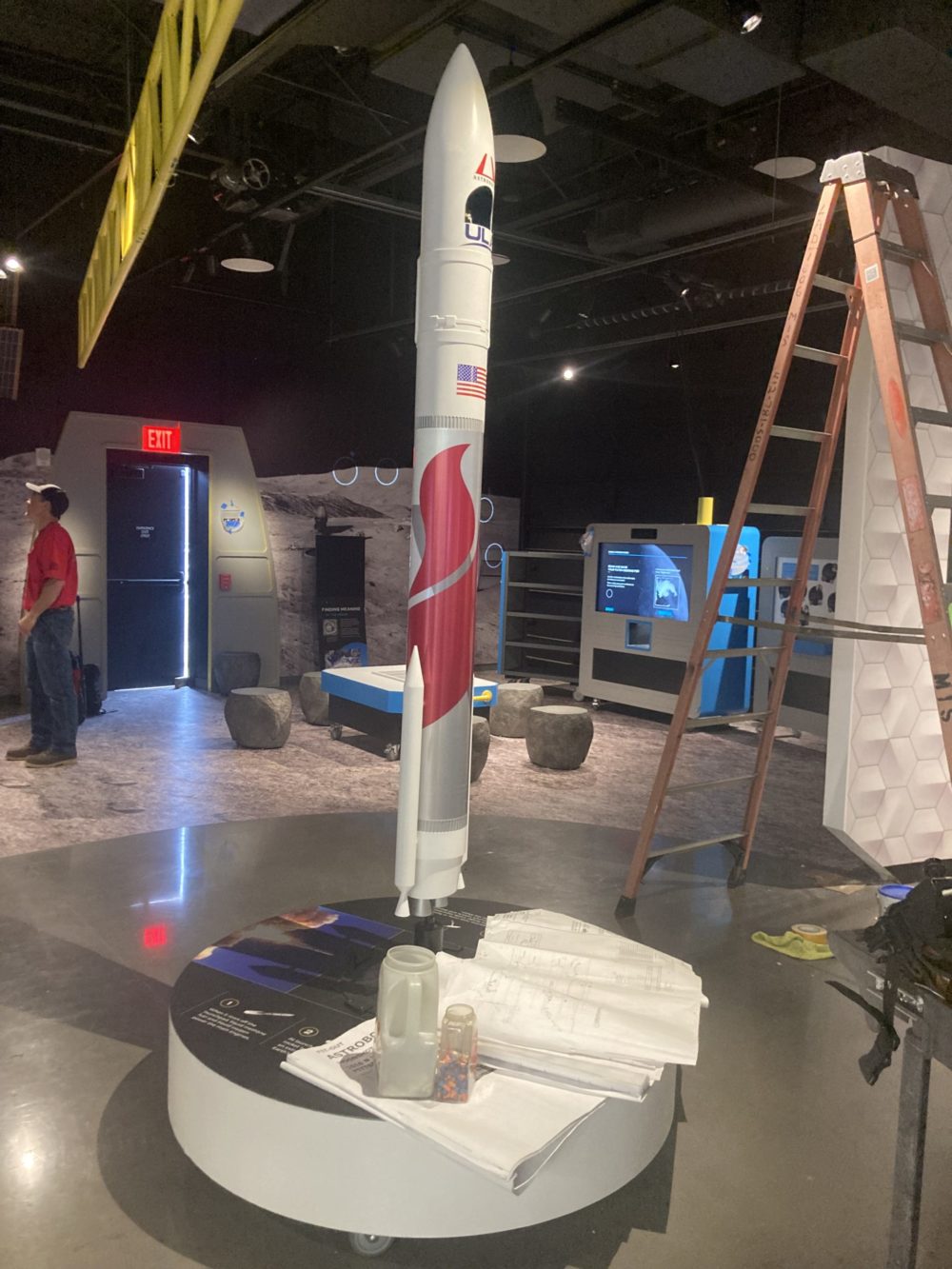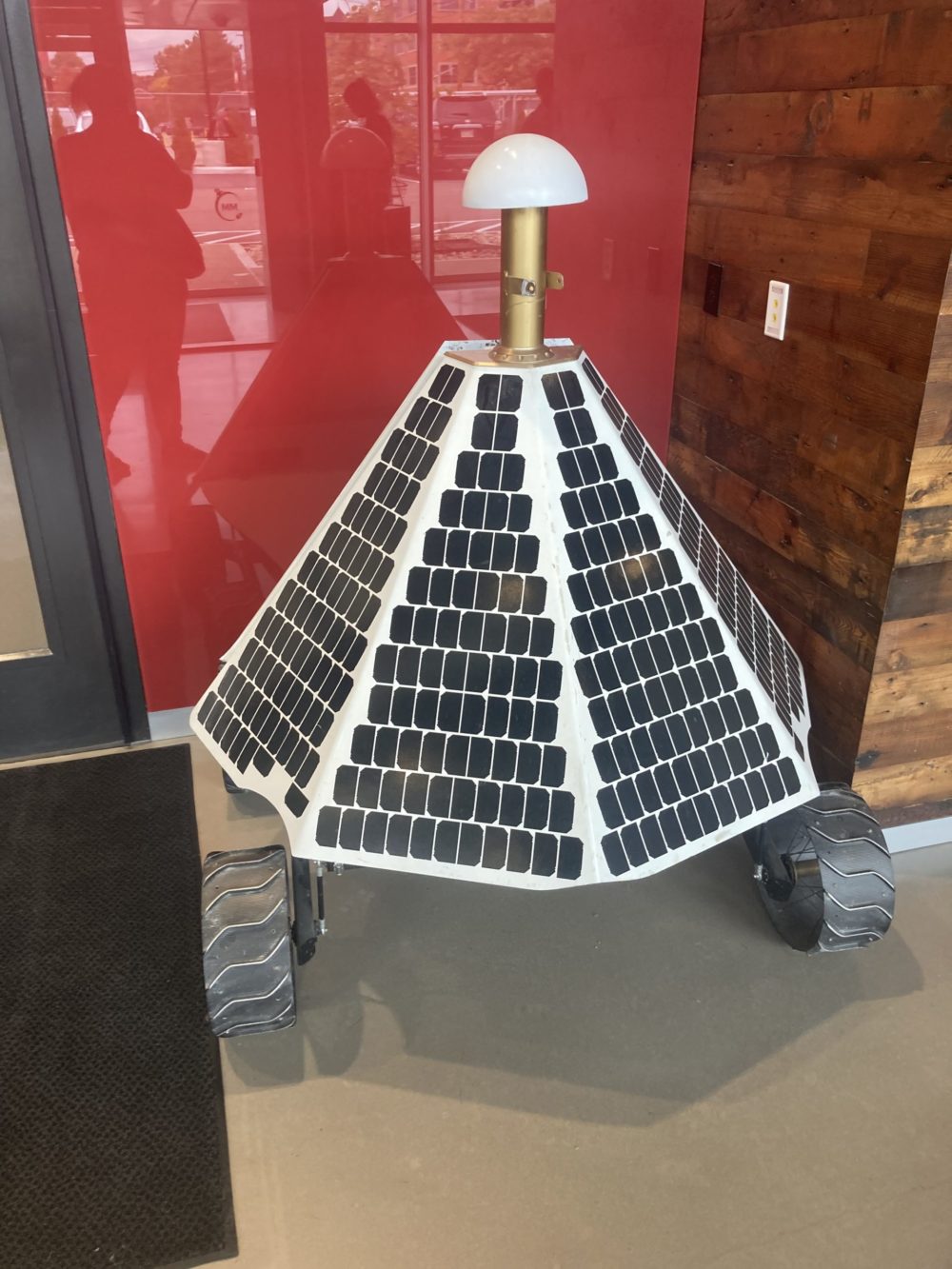One small step for man and one giant leap for Pittsburghers who are fascinated by galaxies far, far away: On Saturday, Oct. 15, the long awaited Moonshot Museum will be open to the public.
Through a partnership with the lunar logistics and robotics company Astrobotic, the Moonshot Museum is offering exhibits that will allow visitors to experience lunar missions without ever having to leave the North Side.
The unveiling of the final product is now only days away after two years of construction. Sam Moore, executive director of the Moonshot Museum, told Technical.ly his team is excited that so many residents are willing to welcome it to the list of local attractions.
“When we started a couple of years ago, no one had any clue what we were doing and had certainly never heard of Moonshot. What’s really gratifying now is when we talk about Moonshot Museum out in the community, people have heard of us,” Moore said. “They know we’re coming, they know that we’re focused on space in some way and so we’ve seen a lot of excitement leading up to our grand opening.”

For $10 for adults or $5 for children, once it’s officially open, visitors can enjoy a deep-dive education on the global space industry. Or, you could write a message that the museum says will later be sent to the moon onboard one of Astrobotic’s lunar landers. (Remember how the company recently got a shoutout in Time mag for its plans to launch its Peregrine spacecraft from the Kennedy Space Center at the end of this year?) If you’re going because space travel appeals to you, you could do a simulation of what it’d be like to explore the moon’s surface and learn survival skills for the lunar environment.
With three full-time employees, two part-time employees, a volunteer staff of 25 and 3,000 square feet to work with, Moore admits the Moonshot Museum is one of the smaller museums in the area. Still, in addition to fun and offering the chance to see some of Astrobotic’s 200 employees working on a lunar spacecraft, the museum is invested in education. Have a middle schooler or high schooler with an interest in space exploration? The Moonshot Museum could be the perfect place for a field trip or an outing.
Moore explained that the focus on those two age groups is a reflection of the fact that during middle school and high school, students are getting an idea of what their interests are and what they excel at. Although elementary aged children are welcome to visit, the museum specifically worked with middle school and high school teachers to design “experiences” that go along with whatever those students might be learning in the classrooms.

“The format, the structure [and] the timing was all determined through prototyping with local students at the end of last year,” Moore said. “And then a lot of work with teachers in our community to make sure that we were building something that met the needs of their classroom and what they were trying to teach, and met their students where they’re at.”
Moore also shared that the museum will be partnering with institutions such as CCAC, Carnegie Science Center and Carnegie Mellon University — which is also a founding partner — to co-build joint programming for students in the area, and eventually an exhibit focused on Mars over the next three years.
Due to space, constraints Moore estimates that the Moonshot Museum will be able to host up to 60 students at a time. Additionally, the executive director said, a part of the goal is to get young people considering the STEM field to realize they don’t necessarily have to leave the Pittsburgh region to pursue their career ambitions while simultaneously teaching them about the role Pittsburgh’s played in the space race in the past.
“When you think about working in robotics, or you think about working in medicine or technology, think about space as well,” Moore said. “And then also think about working in space and Pittsburgh because you don’t have to go to a space coast to do this work, you can stay here in the region.”








